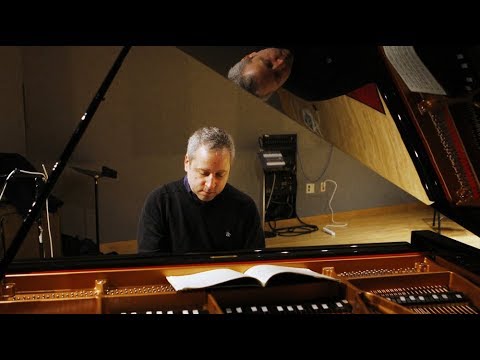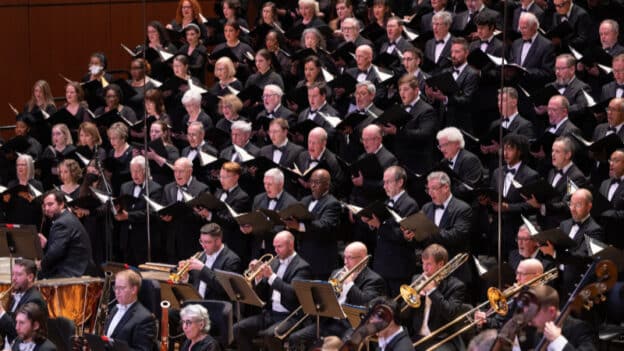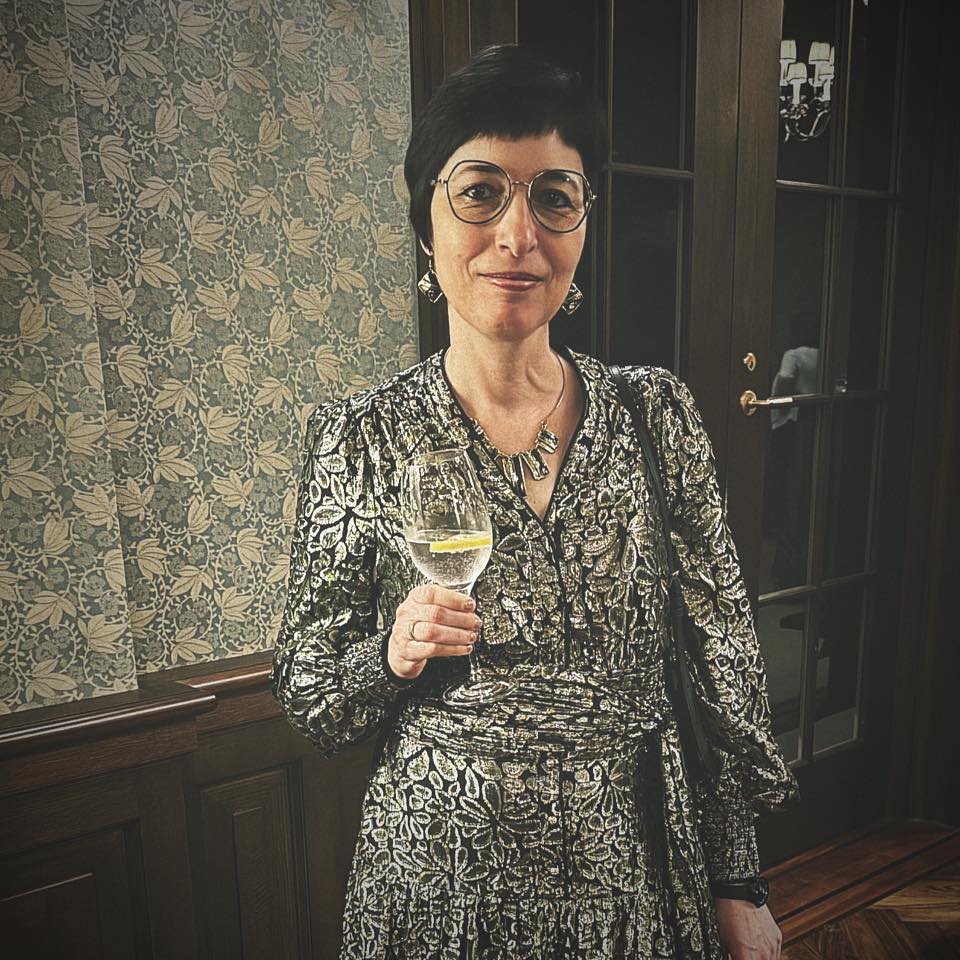Soloist appears too concerned with audience
mainLatest review by Christoper Morley from our CBSO100 series:
BEETHOVEN AND STRAVINSKY
CBSO at Symphony Hall *****
It’s said you can often tell who is conducting from the nature of the sound they draw from an orchestra. But what happens when their sound has multiple personalities, as revealed in this polarised programme (Beethoven and Stravinsky) under the young Spanish conductor Gustavo Gimeno?
The sheer weight of tone he produced from the CBSO at the start of Beethoven’s Egmont Overture was breathtakingly arresting, each chord attacked with the depth of an excavator, leading into an allegro irresistible in its forward momentum, unleashing energetic reserves of power, and ending in a coda where timpani thrilled and horns blazed.
More Beethoven followed, bringing more minor-key solemnity, Jeremy Denk the soloist in the Third Piano Concerto. Gimeno’s opening tutti was both sombre and athletic, Denk’s entry bringing a warmly-balanced piano tone and a sure sense of organic flow, culminating in a formidable cadenza.
Denk’s approach to the otherworldly slow movement was almost Chopinesque in the delicacy of the rippling right-hand thirds and the filigree of decoration, and the finale was crisp and fresh-faced.
What irritated, however, was his habit of frequently turning his head to conspire with the audience, as though to indicate “this is a good bit, isn’t it” — a mannerism far more appropriate to his brilliant encore, a jazzy, uproarious transcription of the Pilgrims’ March from Wagner’s Tannhauser. Was this Denk’s own?

Finally came the alter ego of Gimeno’s weighty tone, an ability via his elegantly expressive beat to deliver with glittering clarity all the multi-layered textures of Stravinsky’s Petrushka. Rhythmically incisive, sound-images swirling like collages, and clearing the way for amazing solos from every department — Ben Dawson’s fiendish piano, Jonathan Holland’s supremely secure trumpet outstanding.
But Gimeno also found amid this teeming pageantry (the final Shrovetide Fair a counterpart to the excitement of the final scene in Wagner’s Meistersinger) moments of lyricism, and a suspense of excitement which led to an ending which was genuinely tragic.
Christopher Morley





Soloist encores have no place at orchestra concerts.
They distract and detract from the real star (and host): the orchestra. They waste the orchestra’s time. They send the audience into the lobby sated instead of hungry for more.
Before the 1990s there never was such a thing.
yes! I have come to value players with the modesty not to give an encore unless the audience go wild; a recent memory is of Ralph Kirshbaum after the Elagar. Argerich gave no encore in London with the Oxford Philharmonic but did so in Oxford (suspect in London it was in dference to Vengerov & Mutter who played the Bach double before her Schumann.
a more acceptable alternative, I feel, is to collaborate, as recently in Stockholm where Pogostina told the audience she felt uncomfortable with a solo encore and played a duet with the first clarinet (the movement without piano from Milhaud’s trio)
In Springfield earlier this year the pianist Claire Huangci played a two hands piano encore with the conductor Kevin Rhodes – Brahms’ Waltz Op. 39 No. 15. It was great.
It all depends: on quality of the soloist’s playing, on quality and duration of the encore, on overall length and contents of the program, etc. Believe it or not, sometimes even orchestra musicians sitting on stage actually enjoy hearing a brilliant soloist play a short piece if it is effective as an encore and does not clash too much with the rest of the program.
Often there are smaller cities with orchestras that do not book many solo recitals. In this case it is a welcome treat for both audience and musicians.
I hate to be the bearer of bad news, but soloist encores at orchestral concerts have been around ever since orchestral concerts have been a thing! In any case, whether they work or not does depend on a whole host of factors which are far too many to enumerate here. Under the right circumstances, a soloist encore can contribute to the experience in quite indefinable ways (such as Peter Serkin adding a Takemitsu ‘bonne bouche’ after doing the Stravinsky Concerto for piano and winds with Knussen some years back at the Proms). My favourite encore memory: Emanuel Ax at another Prom in (I think) 2011, doing the Brahms D minor with Haitink. After a well-deserved ovation, he gave us some Schumann to send us off home happy (‘Des Abends’ from the Fantasiestucke, I think), and not only was it delightful, it was entirely appropriate. But this is the image I remember best: from where I sat, I could see Haitink in the wings, just standing there, back against the wall, arms crossed, taking it all in. A lovely moment………
So from this 5 star review you choose to headline with the only note of criticism?
You mean audience engagement? What a horrific thought!!!
The encore (which Denk plays frequently) is a transcription of a recording by the short-lived stride pianist Donald Lambert. For a long time, four classical improvisations (including the Pilgrim’s Chorus) were all we had of Lambert’s playing – fortunately, more have resurfaced recently. Fantastic pianists, both him and Denk.
The jazz version of the Pilgrim’s Chorus was written by American jazzman Donald Lambert, around 1940.
Why does the headline have to focus on the least important, least interesting aspect of the review?
It is unfortunate that the headline focuses on Mr. Denk’s physical appearance; the reviewer obviously found great merit in Mr. Denk’s music making. Having attended many performances of his, although Mr. Denk’s movements can be distracting, they strike me as reflexive, not a deliberate effort to show off. More important, however, Mr. Denk’s playing is often extraordinary and always rewarding.
The “jazzy” encore mentioned in the review is based on a 1941 recording by stride pianist Donald Lambert. Mr. Denk credits Mr. Lambert when he announces this encore.
Denk played with my orchestra a number of years ago and I got the same impression, of someone playing to the audience rather than for the audience. But whatever. It seemed genuine enough — probably a matter of temperament rather than trying to come up with a gimmick to set himself apart.
What a dreadful piece of self-indulgent writing with the pot calling the kettle black. Says more about the reviewer than the conductor or the music.
Denk’s head reminds me of an owl. It seems to be able to rotate 360 degrees. He is one of many soloists who sound better if one closes the eyes.